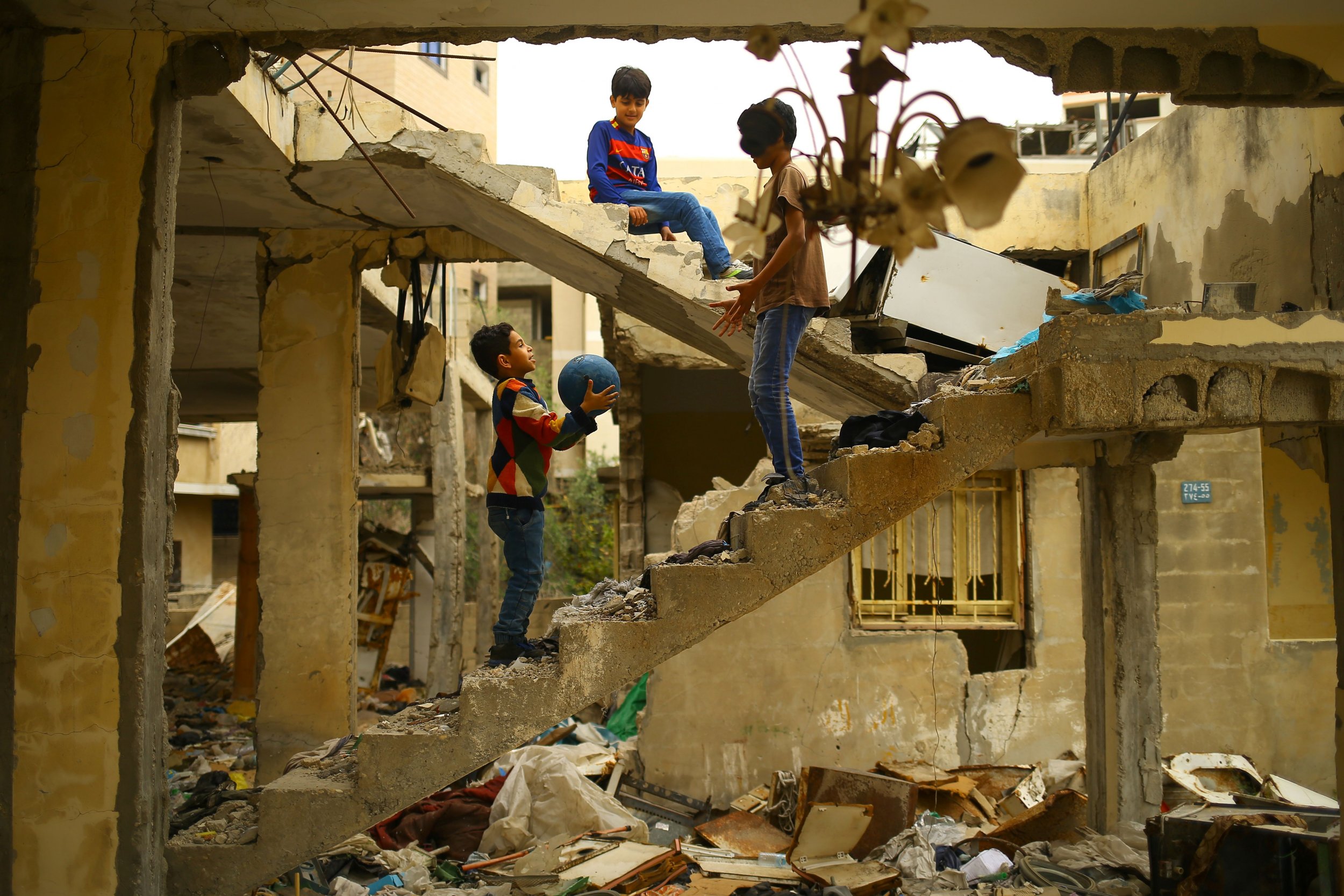
It has been 12 years, one month, and 14 days of the ongoing illegal Israeli siege on Gaza—blocking Palestinians from access to healthcare, clean water, electricity, or any semblance of normal life. The Gaza Strip is a small area of occupied Palestine, known as the largest open-air prison in the world, with over two million Palestinians on an area roughly double the size of Washington, D.C. with almost quadruple the population.
Israel controls its land, air, and sea. With no access to the outside world and regular attacks by the occupying Israeli forces on Palestinian civilians, Gaza is not a humanitarian disaster, it is a crisis of human consciousness.
While the international community turned a blind eye, we saw over half a million of our people internally displaced within the Gaza Strip, with no access to shelter or safety. While Israel bombed and killed over 2,100 Palestinians over 53 days in 2014 alone, we saw the one hospital left standing struggle to even provide gauze or very basic medical care to the thousands injured.
While Israel was busy barring margarine butter or ensuring that no more than 2,279 calories per person entered Gaza per day, the resilience of the Palestinian people remained steadfast and continued to call for peace and a negotiated two-state solution. Imagine if tomorrow the entire populations of New York and Colorado just disappeared from the map of the United States. Over the past 12 years that is exactly what happened to the population of Gazans killed as a result of Israeli aggression.
We went to world capitals to fundraise for a reconstruction bill that Israel was meant to pay—indeed they are responsible for the population they occupy, bomb, attack, imprison, and ethnically cleanse, as the occupying power. At least that is what we learned from the Geneva Convention—which the Palestinians did not draft, but we will continue to operate under.
As the hopes and dreams of the youth of Gaza dim with each passing day they are denied a livelihood to match their levels of high education (the highest unemployment rate in the world with one of the highest literacy rates in the world) the international community further entrenches Israeli violations and provides a Band-Aid to the root cause of their suffering—the illegal occupation, blockage, and siege of Gaza.
Just this week the U.S. administration held a conference to discuss the "health, safety and happiness of the people of Gaza," while just weeks earlier it cut critical aid to UNRWA, the U.N. agency tasked with providing crucial assistance to 80 percent of Gaza's population.
The conference ignored the occupation, the refugee population (75 percent of the total population of Gaza), Israel's denial of permits to those in need of critical medical attention (resulting in the death of 54 Palestinians in 2017), the 98 percent unpotable water rendering Gaza uninhabitable, and the 80 percent food insecurity rate while Israel denies Palestinian fisherman access to our maritime boundary.
It insinuated that the "tragic situation" is either the fault of Palestinians or merely appeared as a result of unclear circumstances. This conference sends a message that the international community is occupied with discussions of a state within Gaza, rather than Gaza being an integral fabric of the State of Palestine.
Unfortunately, we cannot "leave politics at the door"—because the crisis in Gaza is a result of right-wing extremist Israeli policies seeping into the rhetoric of the international community. If the international community will continue to pay the bills for the Israeli occupation, instead of ending it, it is directly responsible for the prolongation and continued occupation of Palestine.
By allowing the Israeli blockade on Gaza to continue, the international community is making the occupation sustainable for Israel.
Each time Israel has an internal government issue it wants to deflect its citizens from, the people of Gaza suffer. Now that their prime minister is under investigation, does it mean that our people will once again pay the heavy price for diverting Israeli citizenry's attention while the international community foots the bill?
Following the Trump administration's recognition of Jerusalem as the capital of Israel, it seems so. While we remain committed to peace, Israel remains committed to diversions. Why not welcome a conference that aims to end the occupation and negotiate a just, sustainable, two-state solution along the 1967 border?
Yet, we remain steadfast on our journey. As our brothers and sisters from South Africa always remind us, the path to liberation is not easy, but the generations that will blossom serve as our guideposts.
Dr. Saeb Erekat is the secretary general of the Palestine Liberation Organization and the chief Palestinian negotiator.
Uncommon Knowledge
Newsweek is committed to challenging conventional wisdom and finding connections in the search for common ground.
Newsweek is committed to challenging conventional wisdom and finding connections in the search for common ground.
About the writer
To read how Newsweek uses AI as a newsroom tool, Click here.








